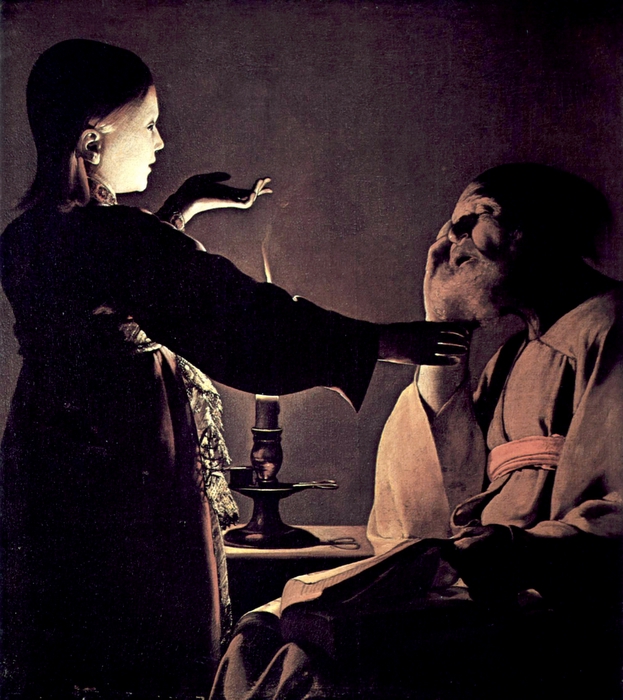ICCH Bulletin of December 18, 2022
December 18, 2022 Fourth Sunday of Advent
Welcome Father Eckhard Today’s Readings: Is 7:10-14 | Rom 1:1-7 | Mt 1:18-24

“She will bear a son and you are to name him Jesus, because he will save his people from their sins.” (Mt 1:21)
####Joseph’s Dream
The message of Christmas is so simple and powerful — the eternal Word of God becomes our kind of flesh — that we can easily slide unthinkingly over some of the surprising preliminaries. An example is Joseph’s dilemma and its resolution by a dream. Here is a good Jewish man engaged to be married, and he learns that his bride has become pregnant before they have come together.
The Law, specifically Deuteronomy 22:23-27, treats such a fact as adultery and calls for the stoning to death of the engaged woman and the guilty male. As a keeper of the Law, Joseph realizes that, given the apparent facts, he must divorce Mary (though death by stoning does not seem a likely outcome at this time). But rather than expose her to the shame of public trial, he decides to divorce her privately. Before he gets a chance to do this, however, he has a dream in which the angel of the Lord tells him that the conception is by the Holy Spirit. Further, he is told to name the child Jesus “because he will save his people from their sins.”
That choice of name is no casual thing. It is both more fitting and more surprising than we might think. Jesus is the Greek form of a Hebrew name, Jeshua or Jehoshua (Joshua in English), commonly interpreted “Yahweh saves.” Ordinarily, if parents gave it a second thought, calling their baby Joshua meant that they were naming the child after the great Israelite leader of the conquest of Canaan.
In addition, the name celebrated the real agent of the Exodus/Conquest, or any other salvation event—God. Now comes the surprising part. The message to Joseph explains the name by saying that he, Jesus himself, will save his people. Moreover, the kind of saving involved in this case is not the usual military kind of saving, i.e., from enemies, like the Egyptians of old or the Romans in their own day. No, it is far more radical than that; he will save his people from their sins.
We are so accustomed to the message to Joseph that we miss the astounding claim that this child will perform a divine act of saving and that the saving will be from nothing less than sin itself. That should stop us in our Advent tracks. Nothing like that was ever said of any Old Testament hero. This is a claim of divine presence as bold as the prologue of the Fourth Gospel. If we are in any doubt that Matthew means us to hear it that way, his own comment in the next verse confirms it.
Matthew finds in Isaiah 7 ff words that, applied to Jesus, leap beyond their original context. Isaiah, in his day, was speaking of a young woman giving birth and naming her child Immanuel. Matthew delights in the fact that the Greek Bible translates almah (“young woman”) with parthenos (“virgin”), thereby making the words an especially apt description of Jesus’ origin. What is more, the name given to the child in Isaiah 7, Immanuel (“With-us-God”), applies to Jesus in a way neither Isaiah nor Ahaz, his interlocutor, could have guessed. Let’s linger with the wonder of the message to Joseph as we move toward the celebration of God-come-to-save-us from our sins in the flesh of Jesus.
Source of reflection: © 2001, Dennis Hamm, SJ, on https://liturgy.slu.edu/4AdvA121822/theword_hamm.html Source of image: Georges de La Tour (1593–1652), “The Apparition of the Angel to St. Joseph”, https://commons.wikimedia.org/wiki/File:Georges_de_La_Tour_022.jpg
News
- 18 December - Opportunity to celebrate the Sacrament of Penance and Reconciliation this Sunday before Mass, from 11:30am in the parish office.
- 25 December - Kindly take notice that our Christmas Mass at ICCH starts at 11:00am!
- 1 January 2023 - No Mass in English at ICCH - we resume our regular Mass schedule on Jan 8, at 1:00pm.
